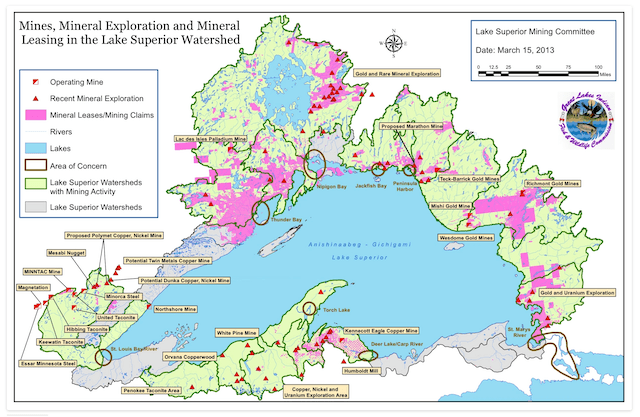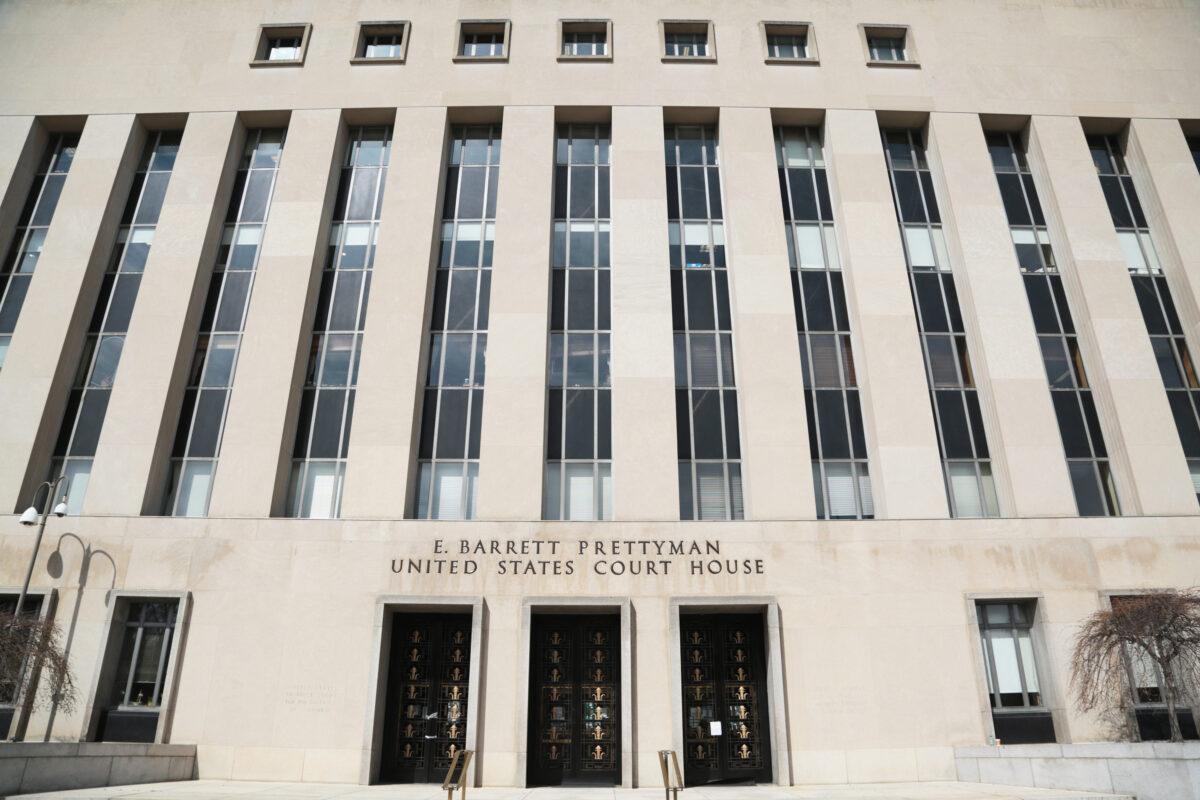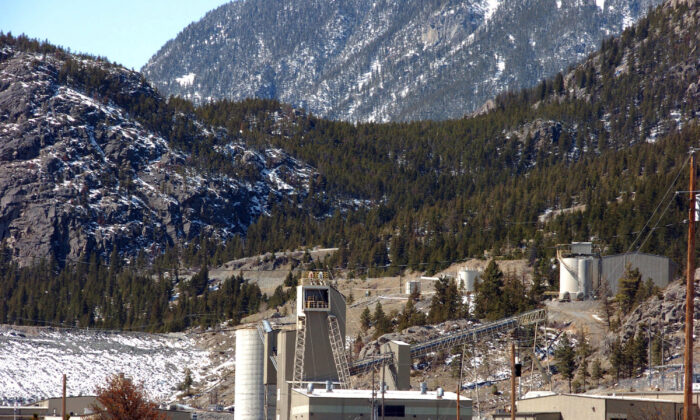Twin Metals’ $1.7 billion project near a wilderness area will likely advance but may take more than issuing a directive after Trump’s inauguration.
A fiercely contested Minnesota copper-nickel mining proposal is among stymied mineral and energy development projects President-elect Donald Trump has pledged to quickly reanimate after he is sworn in for a second presidential term on Jan. 20.
The former president said it would be addressed as quickly as “about 10 minutes” during a July 27, 2024, campaign rally with Rep. Pete Stauber (R-Minn.) in St. Cloud, Minnesota. Trump promised to reverse the Biden administration’s 20-year mining ban on 225,500 acres within Superior National Forest and restore rescinded mineral leases held for decades by Twin Metals Minnesota and predecessor companies.
The ban, issued in 2023 by the Department of the Interior (DOI), effectively buried Twin Metal’s $1.7 billion proposal to extract copper, nickel, cobalt, and other minerals on up to 25,000 acres within the national forest in what would the largest open-pit mine in Minnesota history—and first in the state since 1967—that the Chilean-owned company says would employ 850 people over its projected 30-year operation.
The proposed mine drew heated opposition from a range of local and national groups that argued it is too close to Boundary Waters Canoe Area Wilderness (BWCAW), a 1.1 million-acre sprawl of ecologically fragile forests, glacial lakes, and streams in northeast Minnesota on the Canadian border.
Because it is the nation’s “most heavily visited” wilderness, which is teeming with wildlife, including wolves and black bears, and cherished for its blue-ribbon walleye, northern pike, and bass fishing, opponents say Twin Metals’ proposed mine on the Kawishiwi River and Birch Lake near Ely would endanger 1,000 jobs and $77 million in annual revenues generated by “out of area” recreational and outdoors enthusiasts.
While Twin Metals’ hamstrung proposal is less than six years old, mining has been a hot topic in northeast Minnesota for decades, the latest chapter beginning in 2016 when President Barack Obama imposed a mining moratorium on national forest lands near BWCAW to conduct a two-year analysis of potential effects after series of public hearings and wading through more than 90,000 public comments.
Trump’s DOI in 2017 reversed that decision and halted the “mining moratorium analysis” before the Biden administration in 2021 revived the study, which resulted in the rescinding of Twin Metals’ mineral leases in January 2022 and the 20-year ban on mining in Superior National Forest issued the following January.
Twin Metals challenged the moratorium in a U.S. District Court lawsuit filed in Washington that was dismissed by Judge Christopher Cooper in September 2023. The company appealed Cooper’s ruling and will make its case in oral arguments set for Jan. 13.
“Twin Metals is committed to securing its federal mineral rights, which are essential to our transition to a clean energy future,” Twin Metals Minnesota Chief Project Officer Francisco Awad said in a statement accompanying the Nov. 3 appeal.
“The team at Twin Metals is shaping the future of sustainable mining while championing environmental responsibility,” he said. “We can both safely mine for critical minerals and protect our environment. Let’s allow for the environmental review process to demonstrate that.”
According to the United States Geological Survey (USGS), northeast Minnesota’s Duluth Complex may contain the world’s largest untapped copper deposit, with up to 4 billion tons of copper-nickel ores potentially worth more than $1 trillion.
A 2010 study by University of Minnesota Geology professor Jim Miller determined that the Duluth Complex could also hold 95 percent of nickel, 88 percent of cobalt resource, and 75 percent of platinum group metals within the United States.
These minerals, necessary for renewable energy development, computer systems, cellphones, and national defense weapons systems, among myriad applications, are now largely imported, often from China.
Despite Trump’s vow to lift the moratorium and restore Twin Metals’ Superior National Forest mining leases, it is uncertain whether he can do so “in about 10 minutes” via executive order.

A Lease on Strife
During the campaign, he pledged to reinstall his 2020 executive order declaring the United States’ “undue reliance” on imported rare earth metals and critical minerals—especially from China—a strategic and economic national emergency.
The order requires federal agencies to “prioritize the expansion and protection of the domestic supply chain for minerals” to streamline permitting for mining proposals nationwide, even for projects that don’t involve minerals or metals defined as “critical,” such as copper, by USGS.
But any executive action would be halted by the DOI’s Bureau of Land Management’s Dec. 30, 2024, termination of Twin Metals’ environmental impact statement (EIS) for its project, and it would still need to secure state approval after the Minnesota Department of Natural Resources opted to conduct its own EIS in 2019.
Although Trump’s Department of Justice will almost certainly step aside in contesting Twin Metals’ appeal, the company would still need a ruling to restore the leases.
“Twin Metals will need to get their leases back regardless of the status of the [20-year ban] in order for the environmental review process to begin again,” Mining Minnesota Executive Director Julie Lucas told The Epoch Times.
Those leases could be restored through the lawsuit, which would allow Twin Metals to “reenter” its EIS, she said, or the withdrawal of 225,000 acres from mining activity could be reversed and Twin Metals could reapply for leases, have them reinstated, and begin review again.
Reversing the withdrawal, or ban, would require the DOI to do so or an act of Congress. Stauber, who chairs the House Natural Resources Committee’s Energy and Mineral Resources Subcommittee, has one such act waiting in the wings—The Superior National Forest Restoration Act, which passed the GOP-held House in 2024 in an April 212–203 vote but never advanced in the Democrat-majority Senate.
The bill would have to be reintroduced with the new Congress, and with Republicans controlling both chambers, it would likely advance in the Senate when filed again, which Stauber vows to do.
Twin Metals Public Affairs and Communications Director Kathy Graul did not delve into specifics when responding via email to queries by The Epoch Times.
“As our nation works to create more American jobs, bolster domestic supply chains, and transition to a cleaner future, projects like the one proposed by Twin Metals Minnesota are critical to our ability to achieve all of these goals,” she said.
“[The company] is focused on sustainably developing the mineral resources that support these priorities for our nation. We are committed to advancing our project in a bipartisan manner to ensure Americans can benefit from the much-needed copper, nickel, and cobalt resources that are abundant in northeast Minnesota.”

Bracing for Battle
Opponents, which include Friends of The Boundary Waters, The Center For Biological Diversity, Minnesota Center for Environmental Advocacy, and WaterLegacy in a coalition spearheaded by The Campaign to Save the Boundary Waters, have said they are not backing down and will fight any mining proposals in Superior National Forest near BWCAW.
Libby London, communications director for the Campaign to Save the Boundary Waters, told The Epoch Times that it is assessing what Trump could do in an executive order, administratively, or through the GOP-led Congress.
“We’re talking with our counsel and definitely preparing for [an executive order],” she said.
London said that Trump’s vow to restore the lelases in “10 minutes” has opponents “unclear about exactly what mechanisms” could allow him to do that.
One thing The Campaign to Save the Boundary Waters is clear about is that its attorneys will be in Cooper’s courtroom on Jan. 13 to contest Twin Metals’ appeal, she said.
Mining Minnesota, Twin Metals, and others in the state’s mining industry will also be paying close attention to the oral arguments, and Lucas said that if the company has to resubmit its EIS to regain its leases, such a belabored, exhaustive review could pay off in the long run for everyone involved.
“Projects like Twin Metals Minnesota deserve fair evaluation through the rigorous environmental review process designed to balance progress with resource protection,” she said. “This is not a choice between priorities but a commitment to achieving both. We are encouraged this environmental review process may start again and demonstrate that mineral production and protection of the Boundary Waters Canoe Area Wilderness are not at odds.”

